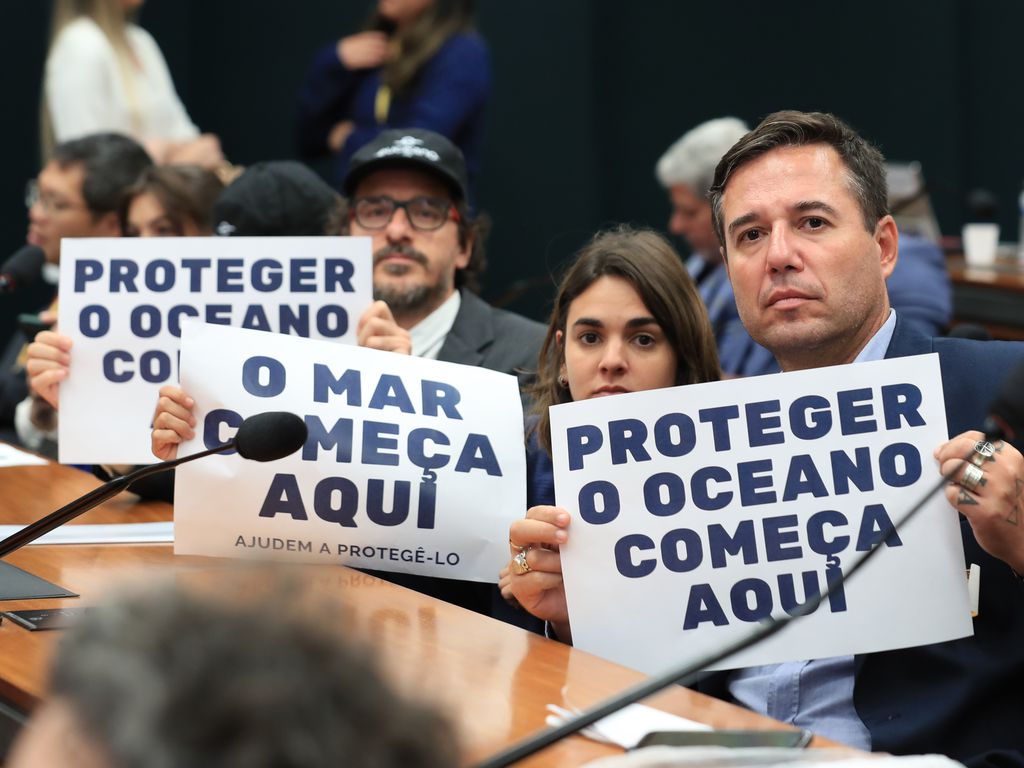This article contains spoilers from the series Extrapolations about the future on a planet dominated by the fossil fuel lobby. Would the recent attack on Brazilian environmental institutions, by the denial of a license for oil exploration in the mouth of the Amazon, be a prelude to the scenes in the series or a demonstration of another possible future?
The year is 2070, and the planet has already warmed by 2.6 degrees compared to pre-industrial levels. In some areas of the world, there is a daytime curfew due to the damaging effects on the brain of sun exposure during high temperatures. Attempts at geoengineering and carbon capture and storage have failed. The forests have succumbed to extreme temperatures.
Humanity has developed solutions to address the health consequences of high temperatures, including ways to alleviate genetic diseases affecting future generations. However, it has been unable to do the only real solution to the problem: reduce greenhouse gas emissions, particularly by transitioning from fossil fuels to renewable energy sources.
The preceding paragraph combines scenes from different episodes of the fictional series Extrapolations, available on Apple TV. The series tells stories of families, love, and faith that unfold in a world increasingly impacted by rising temperatures.
Some reject discussing the tragic scenarios of the climate crisis, as they believe it would paralyze people and not convince them to engage in the cause. For me, we had already moved past that stage when the tragic scenarios started unfolding before our eyes. One such case occurred a year ago in Recife, where 133 people died due to heavy rains and landslides. On May 28th, residents of Recife held a protest to remember the victims and demanded actions for those living in high-risk areas.
The series Extrapolations presents many powerful scenes depicting the future of our planet and humanity. However, what shocked me the most throughout the episodes was people’s complacency in a chaotic world. The series portrays individuals worldwide resigned to the absurdity, following their routine, unable to organize themselves to address the root cause of the problem.
The series reinforced the importance of listening to science right now. The Intergovernmental Panel on Climate Change (IPCC) leaves no doubt: we have less than seven years to reduce greenhouse gas emissions by nearly half if we want to have a chance of limiting the temperature increase to 1.5°C by the end of the century. To achieve this, the International Energy Agency (IEA) has shown that it is only feasible if there are no new oil and gas exploration projects. Existing projects must transition and progressively decline production, considering each country’s different characteristics and needs.
When will we begin to guide investment decisions based on climate science, and who will be the leaders to guide us on this path? I still prefer to believe that the scenarios depicted in the series Extrapolations will remain fiction and that we will not become so complacent in such a morbid way. One reason to keep such a perspective is the recent decision from the Brazilian Institute of the Environment and Renewable Natural Resources (Ibama), which denied Petrobras’ request for drilling permits in the Amazon Mouth. Ibama found a set of technical inconsistencies and requested Petrobras to do an Environmental Assessment of the Sedimentary Area (AAAS).
When will we begin to guide investment decisions based on climate science, and who will be the leaders to guide us on this path? I still prefer to believe that the scenarios depicted in the series Extrapolations will remain fiction and that we will not become so complacent in such a morbid way.
Brenda Brito
Even though the climate impact was not a justification for Ibama’s decision, it is reassuring to see an institution significantly weakened in the previous government offering a high-quality technical analysis and safeguarding the well-being of the Brazilian population.
On the other hand, it is alarming to witness political figures from Amapá and Pará advocating for bypassing the technical analysis and the responsibilities of the Ministry of the Environment (MMA) and Ibama to approve a request without proper justification. During the previous government, these public figures criticized the attacks on and weakening of environmental institutions. They also presented themselves at various climate conferences with speeches about a sustainable vision for Brazil.
With the UNFCCC 2025 climate conference confirmed to take place in Belém, Pará, politicians from the Amazon region need to reevaluate their discourse and listen to what scientists say about fossil fuels and energy transition. After all, this is one of the main themes that permeate the COPs, in which the fossil fuel lobby is increasingly present to hinder countries from reaching more decisive steps for the progressive elimination of this energy source.
Ironically (or not), many of these pro-oil politicians celebrated the confirmation of Belém as the host city for COP30, perhaps because they have never truly understood the purpose of the COPs they have been to. To celebrate Belém as the host city for COP30 while simultaneously advocating for oil exploration in the Amazon Mouth is to work from now on for the failure of this conference, with the fossil fuel lobby preventing significant advances and bringing us closer to the fictional scenes in Extrapolations.
The opinions expressed in this article are the writer’s own.



